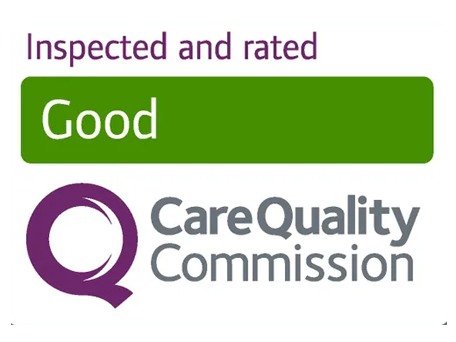Chronic Obstructive Pulmonary Disease (COPD) is a long-term, progressive lung condition that affects millions worldwide, including an estimated 1.2 million people in the United Kingdom. COPD makes it difficult to breathe and perform daily activities, significantly impacting the quality of life for those affected. Early diagnosis, proper treatment, and effective care can make a significant difference in managing the disease.
In this comprehensive guide, we’ll explore what chronic obstructive pulmonary disease is, its symptoms, causes, treatment options, and how caregivers provide essential support for people living with this condition.
What is Chronic Obstructive Pulmonary Disease (COPD)?
COPD is a term used to describe a group of lung diseases that cause airflow blockage and breathing difficulties. The two main conditions under COPD are:
- Chronic Bronchitis: Inflammation of the airways, leading to mucus production and difficulty breathing.
- Emphysema: Damage to the air sacs (alveoli) in the lungs, reducing their ability to transfer oxygen to the bloodstream.
COPD develops gradually over time and is often diagnosed in people over the age of 40. It is a progressive disease, meaning symptoms worsen over time if left untreated.
What Are the Symptoms of COPD?
Symptoms of COPD vary depending on the severity of the condition, but the most common include:
- Shortness of breath (dyspnoea), especially during physical activities.
- Chronic cough that produces mucus (smoker’s cough).
- Wheezing or a whistling sound when breathing.
- Fatigue due to reduced oxygen levels in the body.
- Frequent respiratory infections, such as colds or pneumonia.
- Bluish lips or fingernails (cyanosis) due to a lack of oxygen.
Causes and Risk Factors of COPD
- Smoking: Smoking is the leading cause of COPD, accounting for approximately 80-90% of cases. The harmful chemicals in cigarettes damage the airways and lungs, leading to chronic inflammation.
- Long-term exposure to pollutants: Continuous exposure to harmful substances, such as air pollution, industrial fumes, or dust, can increase the risk of COPD.
- Genetics: A rare genetic condition called alpha-1 antitrypsin deficiency can make some individuals more susceptible to chronic obstructive pulmonary disease, even if they have never smoked.
- Age: COPD typically develops after the age of 40, as the lungs’ ability to repair damage declines with age.
How is COPD Diagnosed?
Early diagnosis of COPD is crucial for effective management. Healthcare professionals use the following methods to diagnose the condition:
- Spirometry test: Measures lung function and airflow restriction.
- Chest X-rays or CT scans: Identifies lung damage or other conditions.
- Blood tests: Checks oxygen and carbon dioxide levels.
- Medical history: Assesses symptoms, lifestyle, and exposure to risk factors.
Treatment and Management of COPD
While there is no cure for chronic obstructive pulmonary disease, treatments focus on managing symptoms, improving quality of life, and slowing disease progression
- Medications
• Bronchodilators: Help relax the airway muscles, improving airflow.
• Corticosteroids: Reduce airway inflammation and swelling.
• Antibiotics: Treat respiratory infections that worsen symptoms. - Pulmonary Rehabilitation: This program combines education, exercise, and support to improve lung function, fitness, and emotional well-being.
- Oxygen Therapy: For severe cases, oxygen therapy ensures the body gets adequate oxygen levels, especially during sleep or physical activity.
- Lifestyle Changes
• Quitting smoking: The most effective way to slow the progression of COPD.
• Healthy diet: Proper nutrition supports overall health and energy levels.
• Regular exercise: Gentle exercises, like walking or yoga, improve lung capacity. - Surgery: In advanced cases, procedures like lung volume reduction surgery or lung transplants may be considered.
The Role of Carers in COPD Management
Living with chronic obstructive pulmonary disease can be challenging, and many individuals require additional support from family members or professional carers. Carers provide invaluable assistance to improve the comfort and quality of life for those with COPD.
- Assisting with Daily Activities: Shortness of breath can make routine tasks like dressing, cooking, or cleaning exhausting. Carers offer practical help to ensure daily activities are manageable.
- Monitoring Symptoms: Carers help monitor symptoms, such as worsening shortness of breath or fatigue, and report changes to healthcare professionals.
- Encouraging Medication Adherence: Proper use of inhalers and adherence to medication schedules are crucial. Carers assist in managing medications and ensuring timely doses.
- Providing Emotional Support: Living with COPD can lead to feelings of anxiety, depression, or isolation. Carers provide emotional reassurance, companionship, and encouragement.
- Supporting Breathing Exercises: Simple breathing techniques, such as pursed-lip breathing or diaphragmatic breathing, can help manage shortness of breath. Carers guide and assist with these exercises.
- Promoting a Healthy Environment: Carers ensure the living space is free of irritants like smoke, dust, or strong odors that can trigger chronic obstructive pulmonary disease symptoms.
Specialized COPD Care Services
For individuals with advanced chronic obstructive pulmonary disease, professional healthcare agencies offer tailored care plans to meet specific needs. These services include:
- 24-hour care for those requiring constant support.
- Respite care to provide family carers with temporary relief.
- Sleep-In or Waking Night Care to address nighttime breathing difficulties.
Why Choose Us?
- Specialised COPD carers: Skilled in managing respiratory conditions.
- Customised care plans: Flexible support to meet individual needs.
- Home adaptations: Guidance on creating a COPD-friendly living environment.
- Comprehensive support: Emotional care, medication management, and practical assistance.
Conclusion
Chronic Obstructive Pulmonary Disease is a challenging condition that requires a combination of medical treatment, lifestyle adjustments, and dedicated care. With the right support, individuals can manage their symptoms, improve their quality of life, and maintain independence for as long as possible.
If you or a loved one are living with chronic obstructive pulmonary disease and need professional care, contact us today for a free consultation. Let us help you breathe easier with tailored care and support designed just for you.









